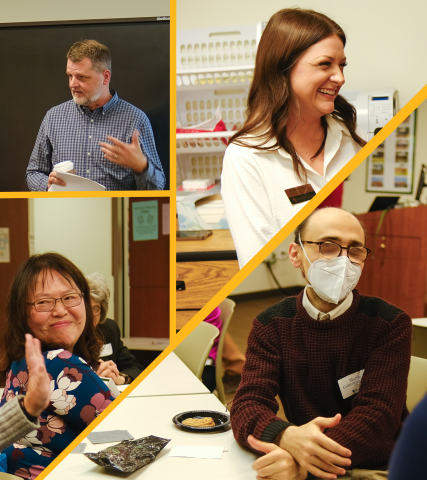Education
High-Quality Education
Our work focuses on establishing research-based practices, programs, and policies that ensure children and youth with disabilities can flourish academically and socially in their local schools. We are equipping and supporting teachers, related service providers, and school leaders to adopt strong values and wise practices that promote learning and growth for students with disabilities.
Example studies and projects include:
The PEAKS Project
The Preparing Educators with Autism Knowledge and Skills (PEAKS) program provides Texas teachers with specialized professional development in evidence-based practices for students with autism. Training is offered in a variety of formats to school districts and individual educators.
For more information, contact Dr. Tonya Davis.
Project LEER
This five-year interdisciplinary project with Texas A&M University and the University of Texas at San Antonio is funded through the Office of English Language Acquisition. It provides professional development and technical assistance to general, special, bilingual, and ESL teachers on evidence-based practices focused on improving the reading, social-emotional, and behavioral outcomes of English Learners with disabilities. It partners with high-need school districts serving a large proportion of English Learners at social and academic risk and with disabilities.
For more information, contact Dr. Mack Burke.
Project DIVERSE
Doctoral Scholars Implementing Socially Valid Evidence-Based Practices and Research for Improving the Language, Literacy, and Social-Emotional Outcomes of Culturally and Linguistically Diverse Exceptional Learners.
Project DIVERSE will prepare doctoral scholars focused on developing expertise in evidence-based practices (EBPs) focused on academic language, assessment, and social, emotional, and behavioral support for Culturally and Linguistically Diverse (CLD) Learners with disabilities.Project DIVERSE focuses on a "needs based" language and disability inclusive approach to special education that:
- Cuts across disability areas
- Emphases individualized intervention of learning and/or behavior difficulties within a prevention science framework
- Focuses on evidence-based practices to improve special education services for CLD learners with disabilities.
Project DIVERSE represents an interdisciplinary collaboration between (1) Department of Educational Psychology at Baylor University (BU), (2) Department of Educational Psychology (Bilingual/ESL and Special Education Divisions) at Texas A&M University (TAMU), and (3) Departments of Interdisciplinary Learning and Teaching and Department of Bilingual-Bicultural Studies at The University of Texas at San Antonio (UTSA).
For more information contact Dr. Mack Burke.
School Belonging Project
This study explores the pathways to inclusion and belonging in schools for students with intellectual and developmental disabilities. We are exploring several questions: What does it really mean to belong? What are the practices and postures of communities that lead in this direction (or lead away)? What difference does belonging make for students with and without disabilities?
For more information, contact Dr. Erik Carter.
Equipping Educators Training Series
The Baylor Center for Developmental Disabilities hosts one-hour educator training sessions every month. Topics include classroom management, functions of behavior, strategies to address challenging behaviors, and teaching techniques to promote skill acquisition.
The BCDD goal is to provide teachers with strategies and techniques to enhance academic and social success for students with disabilities.
For more information on the training series, please call the BCDD clinic at (254) 710-7677 or contact bcdd@baylor.edu.
